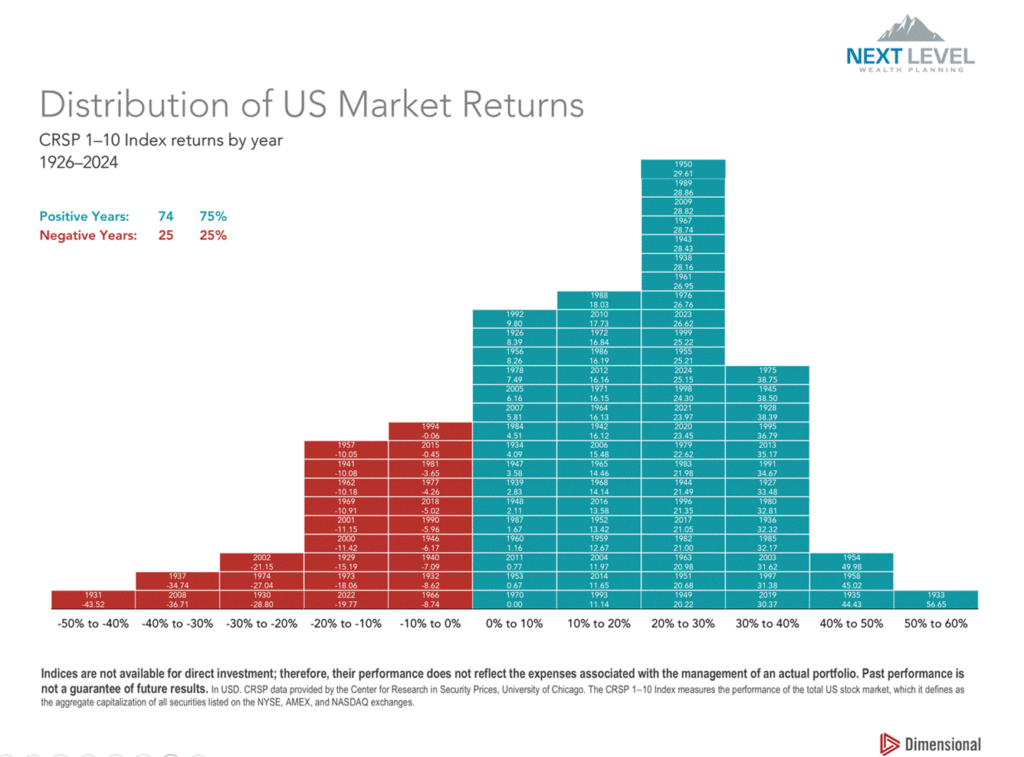Is NOW the Right Time to Take Action?
Market volatility brings out a range of emotions—uncertainty, fear, even paralysis. When those emotions take over, the default response for most people is to do nothing.
That feels safe. It feels rational.
But over time, it can actually be the costliest move you could make—especially emotionally.
Psychologists Thomas Gilovich and Victoria Medvec coined the term “inaction effect” back in the ’90s. They found that while people might initially regret mistakes from taking action, the regret that lingers the longest usually comes from the things they didn’t do.
This plays out in investing all the time.
Rarely do people say, “I wish I hadn’t invested back then.”
What they say instead is, “I wish I had done something when the market was down.
Here’s the real talk:
Every market dip feels like “maybe this is the big one.”
Spoiler: it rarely is. See in the below data—only 6 out of the last 99 years have dropped more than 20%, and half of them were in the 1930s.

While most people are refreshing headlines and debating whether to “wait it out,” a few others are taking action—not flashy, but smart, boring, compounding decisions that their future selves will appreciate.
So what does smart action look like right now?
Glad you asked. Here are 4 moves that aren’t fancy but work:
- Rebalance your portfolio.
When markets move, your portfolio shifts. Rebalancing gets you back to your target allocation, which usually means buying what’s gone down and trimming what’s gone up. It’s a built-in system for buying low and selling high—no prediction required. For retirees, this can be especially powerful—it’s a disciplined way to stay invested while still “buying in” during down markets, even if you’re not putting in new cash. - Put your cash to work (slowly).
Trying to time the bottom is nearly impossible. But if you have cash on the sidelines, consider dollar-cost averaging into the market over a few months. It spreads out the risk and keeps you from sitting in cash too long. - Tax-loss harvest.
If you’re holding investments at a loss, you can sell them, take the tax loss, and reinvest in a similar holding. This doesn’t change your market exposure, but it can reduce your tax bill—now and in the future. - Convert to Roth while it’s on sale.
When values are low, you can convert more IRA dollars to Roth for the same tax cost. You’re pre-paying the IRS today so future-you gets tax-free growth forever. That’s a trade you want.
The Bottom Line:
When we look back, we don’t regret the small missteps.
We regret the missed steps.
Taking the right action during uncertainty doesn’t feel good in the moment.
But it’s usually the seed of your biggest financial wins.
Most people will wait for things to “feel better.”
The people who win?
They move before it does.
